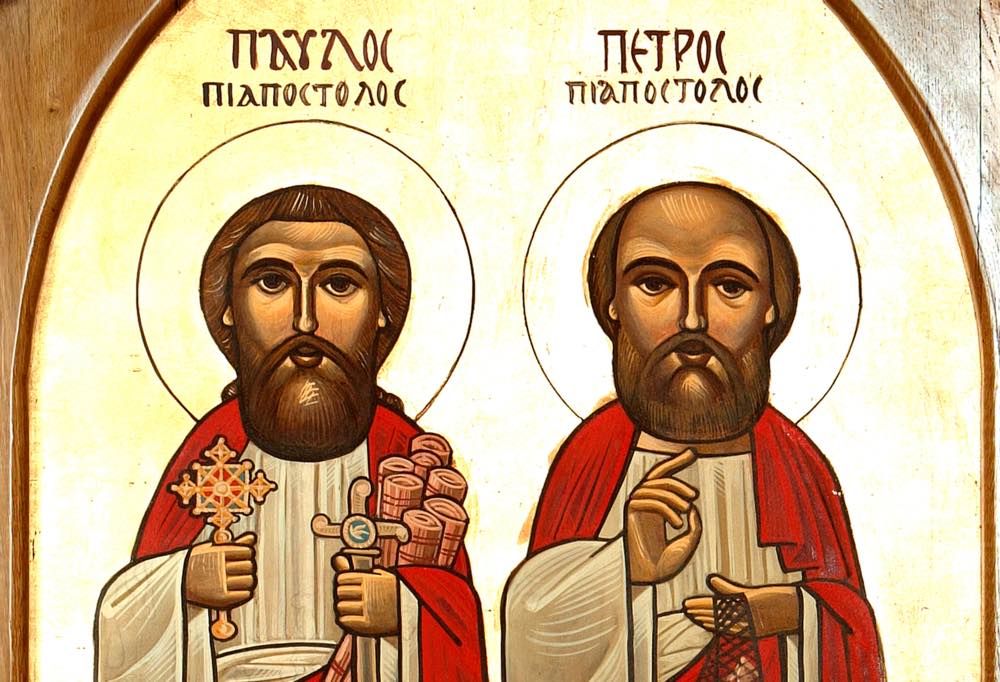Anastasios
When we talk of important thinkers between the second and third century of the Christian era, it is impossible not to mention Origen of Alexandria. His father, Leonidas, died as a martyr and it was he who infused on the young Origen the love for the Scripture. When he was 18 he will succeed Clement of Alexandria as a teacher of catechesis in the famous school of Alexandria. He will be also a student in Rome. Back in Alexandria will be a student of Ammonio Sacca. After few others intellectual adventures he will be the tutor of Giulia Mammèa, mother of the Emperor Severus Alexander. This may explain the good opinion that this Emperor had toward Christians.
He was ordained as a priest at the age of 43, but this will be the beginning of a very sad time in the life of Origen. He was ordained outside of his diocese of Alexandria and the local Bishop was not very happy about that, making public his dissatisfaction. What had happened? He was interpreting the following passage of Matthew (19:12)) in a too literal and mistaken way: “Some are incapable of marriage because they were born so; some, because they were made so by others; some, because they have renounced marriage for the sake of the kingdom of heaven. Whoever can accept this ought to accept it.” From that time a persecution started against him, and at a certain moment he was also defrocked. He will die at the age of 70.
Origen was a very controversial writer, because some of his doctrines will be rejected by the Church. Still, his role is very important also for his studies on the Trinity: “Origen (c. 185–c. 253) was a Christian exegete and theologian, who made copious use of the allegorical method in his commentaries, and (though later considered a heretic) laid the foundations of philosophical theology for the church. He was taught by a certain Ammonius, whom the majority of scholars identify as Ammonius Saccas, the teacher of Plotinus; many believe, however, that the external evidence will not allow us to identify him with the Origen whom Plotinus knew as a colleague. He was certainly well-instructed in philosophy and made use of it as an ancillary to the exposition and harmonization of scripture. This was the task that he undertook in most of his extant writings, and the more systematic theology is founded on the ecclesiastical doctrines of the Trinity, the incarnation, salvation after death and the inerrancy of scripture. Origen was the first Christian to speak of three “hypostases” in the Trinity and to use the term homoousios (though only by analogy) of the relation between the second of these hypostases and the first. The Father, or first person, is nevertheless the only one who is autotheos, God in the fullest sense, whereas the Son is his dunamis or power and the Spirit a dependent being, operative only in the elect. All three are eternal and incorporeal, the Son being known as Wisdom in relation to the Father and Logos (reason, word) in relation to the world. In this capacity he is the shepherd of rational beings the logikoi, who, according to his later critics, were said in his lost writings to have been in origin incorporeal beings coeval with the world if not eternal, and currently imprisoned in material bodies only because of a cooling in their love” (Edwards, Mark J, “Origen”, The Stanford Encyclopedia of Philosophy (Summer 2018 Edition)).
In the general audience on April 25, 2007, Pope Benedict XVI said of Origen: “I invite you – and so I conclude – to welcome into your hearts the teaching of this great master of faith. He reminds us with deep delight that in the prayerful reading of Scripture and in consistent commitment to life, the Church is ever renewed and rejuvenated. The Word of God, which never ages and is never exhausted, is a privileged means to this end. Indeed, it is the Word of God, through the action of the Holy Spirit, which always guides us to the whole truth (cf. Benedict XVI, Address at the International Congress for the 50th Anniversary of Dei Verbum). And let us pray to the Lord that he will give us thinkers, theologians and exegetes who discover this multifaceted dimension, this ongoing timeliness of Sacred Scripture, its newness for today. Let us pray that the Lord will help us to read Sacred Scripture in a prayerful way, to be truly nourished with the true Bread of Life, with his Word.”
Yes, following the words of the Pope Emeritus, we can also think that, despite the complexities in the life of this great thinker, we should ask for theologians and exegetes like Origen, who will help us to discover and/or rediscover the depth of the Scripture for the good of all the Christian faithful.


 Follow
Follow


